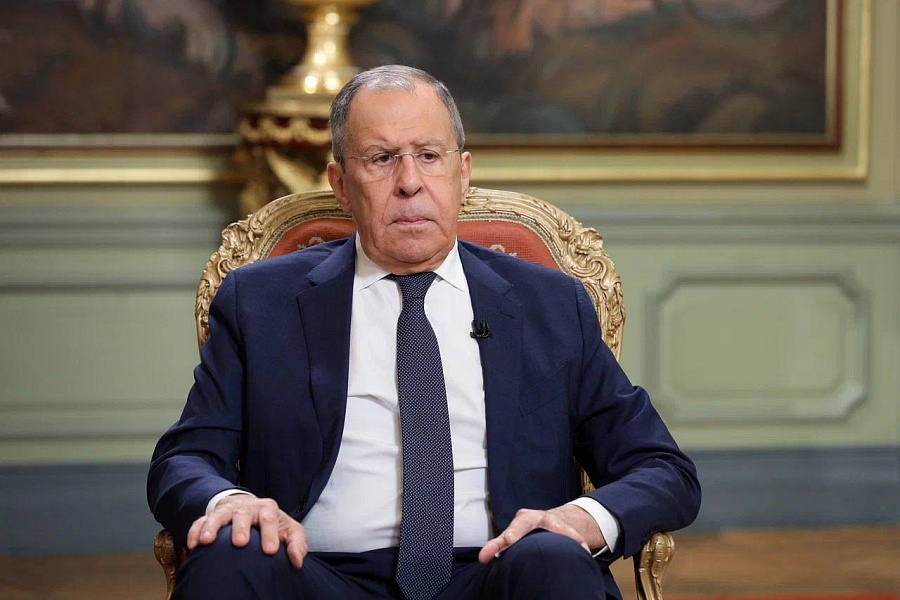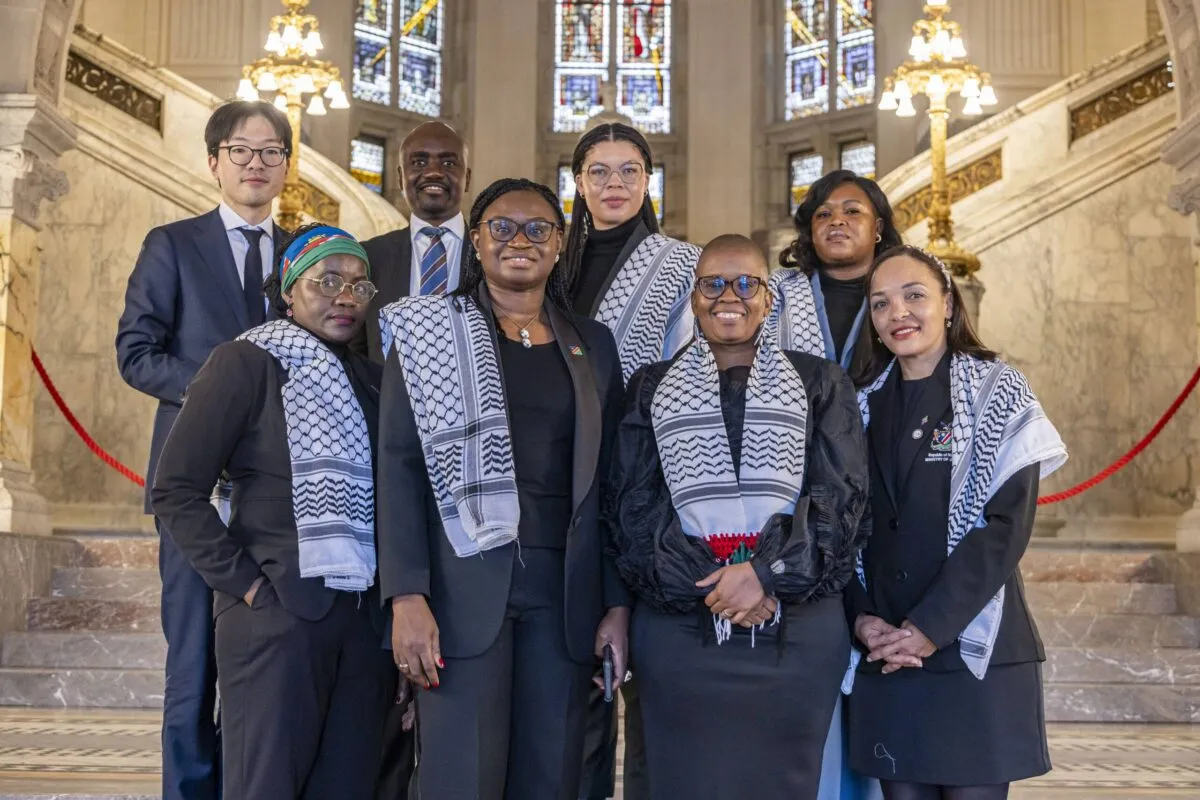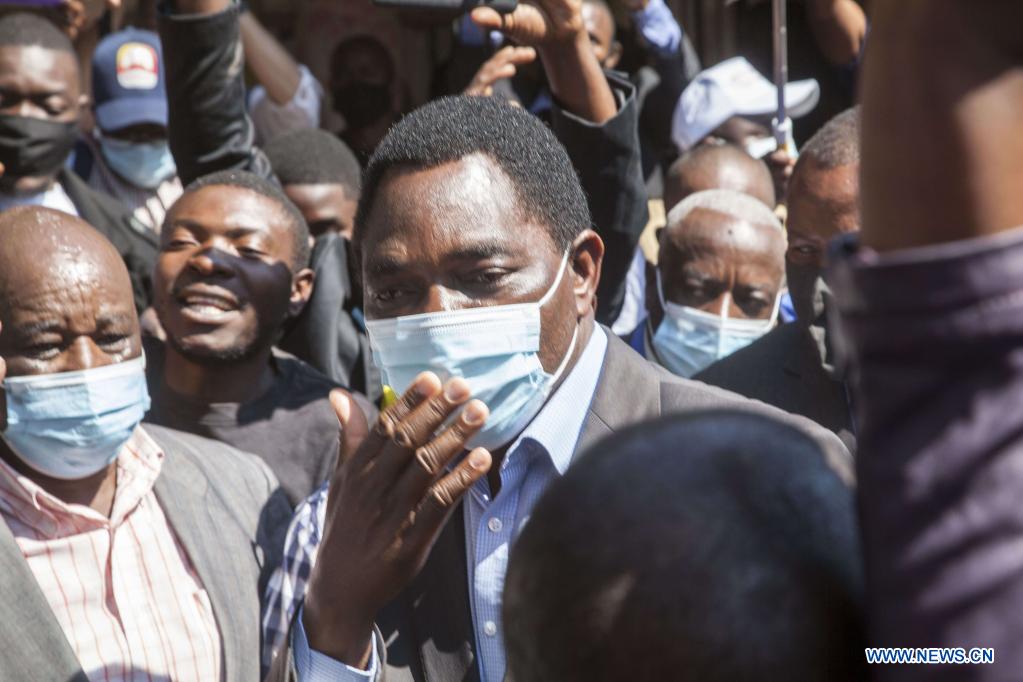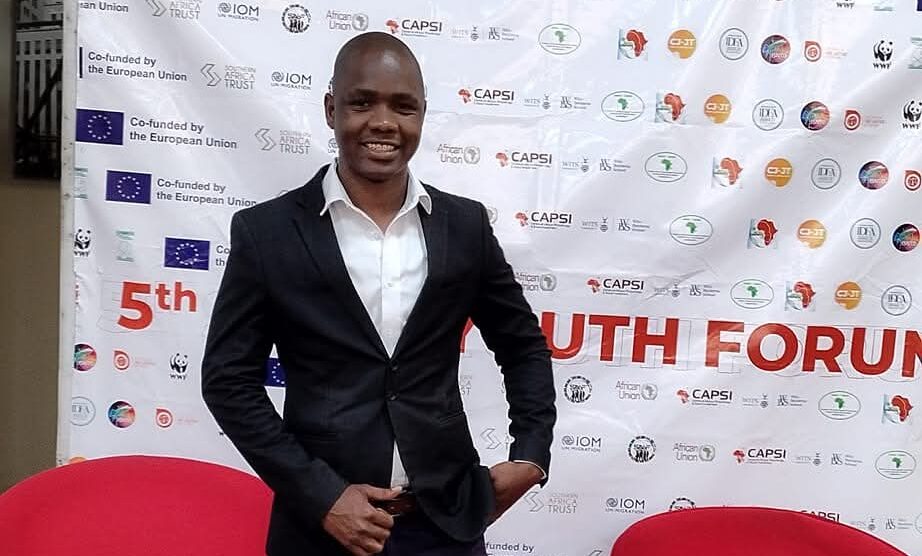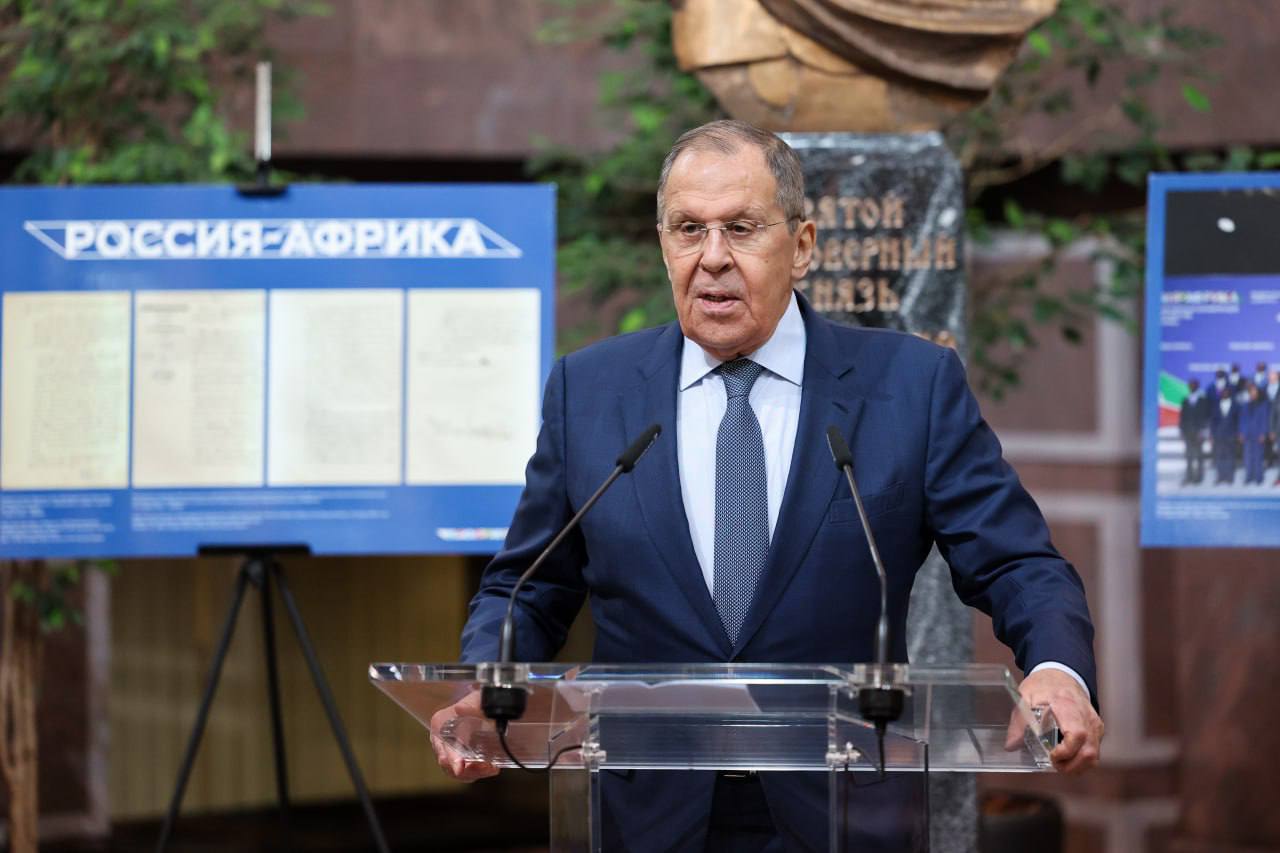
Russia's Foreign Minister, Sergio Lavrov
By Sergio Lavrov
The establishment of a new Foreign Ministry department, the Department for Partnership with Africa, underscores the significance that Russia’s leadership places on advancing the African aspect of our foreign policy.
This priority is enshrined in the Foreign Policy Concept approved by President Putin in March 2023 and has become increasingly prominent in our practical policies in the international arena.

Our African friends have always found a reliable and understanding friend and partner in Russia. Our friendship and partnership are deeply rooted in history.
Russia selflessly supported Africans in their heroic struggle against colonial powers for freedom and independence, and assisted in developing young states, their economies, strengthening their defence capabilities, training national specialists, and resolving daunting social challenges.
You can refresh your memory and revisit the key historical milestones of our relations by exploring the displayed documents and photographs from the Foreign Ministry’s archives, which showcase Russia’s cooperation with African countries beginning in the Soviet era to the present day and, more broadly, the history of our Ministry’s African policy, its organizational structure, and activities.
Africans are playing an increasingly significant role in global politics and the economy, and widely participate in addressing international issues. The collective voice of African countries in world affairs is growing louder and clearer.
Russia consistently advocates for strengthening Africa’s position in the multipolar world that is objectively taking shape before our eyes. This world must be consistently based on the principles of the UN Charter in their entirety and interrelation.
Our Western colleagues are now focused on inflicting a strategic defeat on my country by using Ukrainians as proxies. They are flooding Ukraine with modern weapons to strike the Russian Federation and protect an openly Nazi regime.
This regime has outlawed everything Russian, from language to culture, and seeks to eradicate the historical memory of the people who built Donbass and Novorossiya, and developed these lands.
They aim to destroy not only history, but also the memory of the heroes who laid down their lives to liberate these lands from Nazi occupation.
In this context, while speaking about the principles of the UN Charter, our Western “colleagues” demand compliance with the principle of territorial integrity, willfully leaving out other principles, primarily the sovereign equality of states, equal rights, and self-determination of peoples.
These principles have never been respected by the modern-day West. Importantly, the principle of self-determination underpinned the decolonization of Africa. It is based on UN resolutions, in adopting which our country played a decisive and proactive role.
Having reached a certain point of the colonial oppression, the Africans decided that they could no longer live under the rule of the colonial power governments that did not represent the interests of African peoples.
By the same token, the Kiev regime cannot claim to be representing the interests of the people of Donbass and Novorossiya, nor the interests of the people from many other regions of Ukraine.
We support the push of our African friends to secure a permanent seat at the UN Security Council and we respect the decisions taken by Africans in this regard. I’m referring to the Ezulwini Consensus and the Sirte Declaration.
We welcome the successful development of strong integration entities in Africa. We support our friends’ desire to determine their own future, as they remain guided by the African solutions to African problems principle.
Russia-Africa cooperation, which President Vladimir Putin termed strategic in his article “Russia and Africa: Joining Efforts for Peace, Progress and a Successful Future,” is reaching new qualitative heights.
The significance of the first and second Russia-Africa Summits, alongside last November’s inaugural ministerial conference of the Russia-Africa Partnership Forum, cannot be overstated.
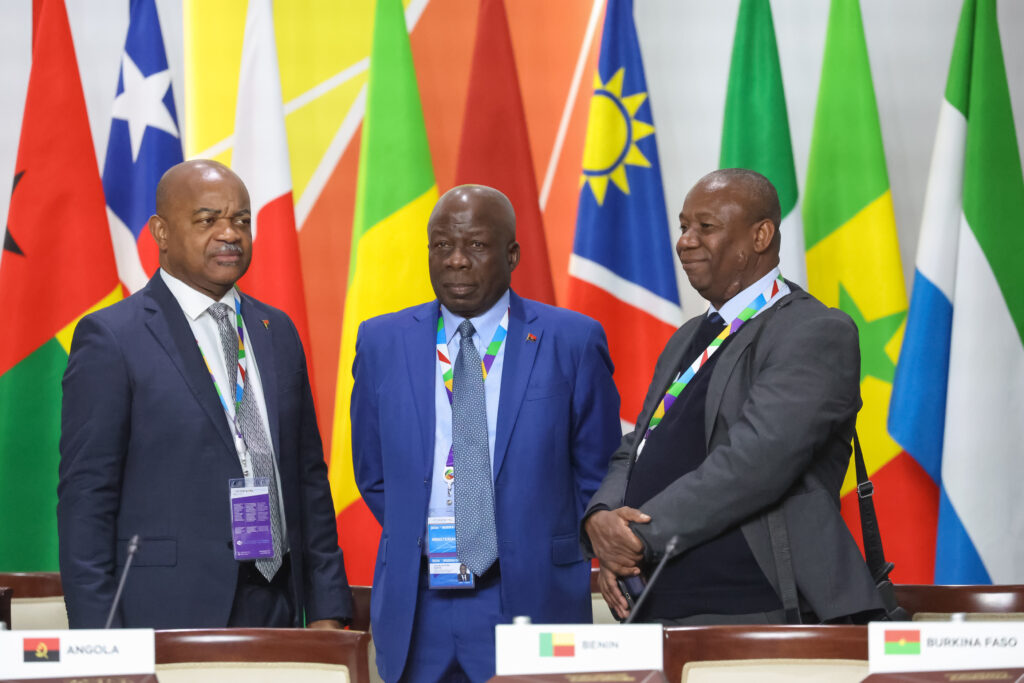
In conjunction with our African partners, we are implementing agreed measures under the Action Plan adopted in St Petersburg in summer 2023.
Progress is tangible, yet more remains to be done. Even though growing ($25 billion in 2024), our trade and economic cooperation still underperforms relative to its potential.
Other African partners post markedly higher figures – a spur to identifying new constructive projects that solidify the material foundations of our strategic partnership.
Opportunities abound, particularly in energy, logistics and transport corridors, creation of reliable settlement systems in high-tech domains (including outer space exploration, digital technologies, and nuclear energy), and beyond.
We stand ready to collaborate bilaterally and through our like-minded partners and friends in the EAEU, the CIS, and the SCO. Africa’s positions within BRICS continue to strengthen – a trajectory set to expand further.
We prioritise relations between Eurasian and African integration entities where prospects prove promising. Inter-parliamentary and inter-party ties are deepening.
Russia will continue to support African nations in countering terrorism, including through the establishment of pertinent agencies, ensuring food security, combatting epidemics, and training highly skilled personnel.
The number of African students studying in Russia – including those of them whose studies are funded from the federal budget – rises steadily.
We anticipate substantive outcomes by the next Russia-Africa Partnership Forum ministerial conference, which we expect to take place in Africa, as agreed by heads of state, in order to thoroughly prepare for the third Russia-Africa Summit slated for 2026.
I concur with those referencing Russia’s return to Africa, though the term may sound ambiguous. I clearly remember that after the collapse of the Soviet Union, several reasons were behind the weakening of our ties and interest in Africa.
One of them was objective: the USSR’s financial circumstances and that of its successor states, including the Russian Federation. It was absolutely hopeless and compelled embassy closures in order to save foreign policy resources.
The second reason was political. Regrettably, the leadership of the Russian Federation after Russia became a sovereign state (already outside the Soviet Union) believed that the “Western civilisation’s” doors lay open, dismissing everything else.
This strategic error, now universally acknowledged, including at the state level – I assure you – proved instructive for today’s Russian policymakers and public.
We are convinced that Africa is our natural ally in our joint endeavours to uphold the UN Charter’s principles of justice and equality.
It is for this reason that another department dedicated to African affairs, the Department for Partnership with Africa, has been created within the Ministry.
This decision reflects our trunk route towards strengthening multifaceted and multiformat ties with the continent and, more broadly, with the Global South and World Majority countries.
At the Ministry, both here in Moscow’s Central Office and across our foreign missions, we are shifting significant resources away from the areas that once relied on the expectation that our Western colleagues would act responsibly and in accordance with international law.
However, these hopes foundered. As a result, we are redirecting these resources to diplomatic efforts which focus on the World Majority countries, where there’s a substantial amount of work to be done. This work will continue.
We are coordinating this work as part of the Russia-Africa Partnership Forum. This will be the primary area of focus for the new Department.
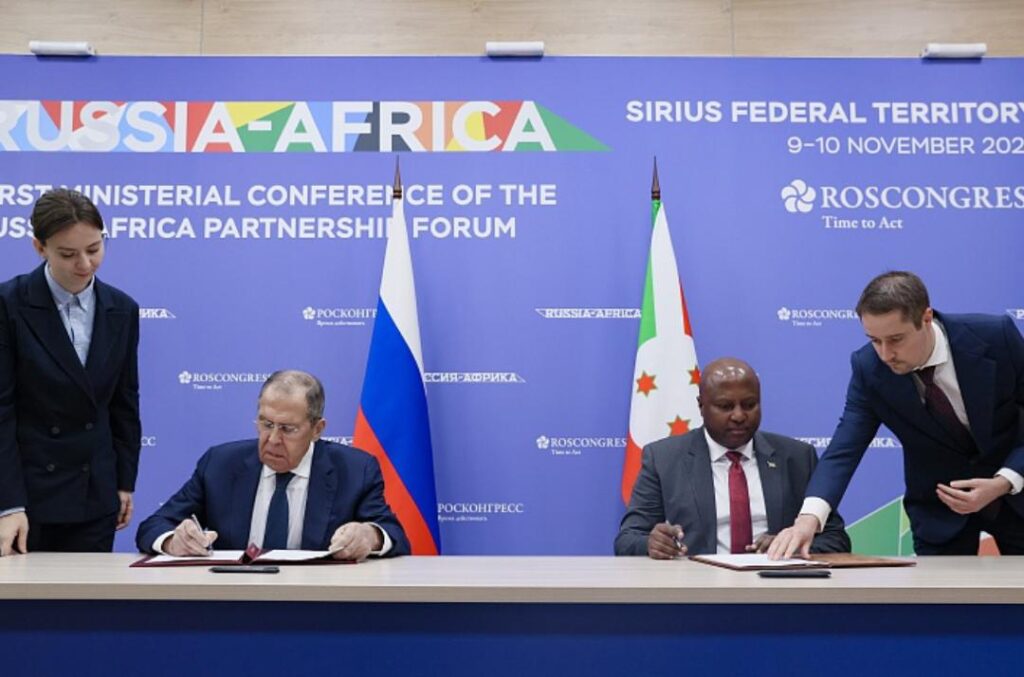
In addition to that, it will focus on expanding relations with the African Union, other regional and sub-regional associations, groups of states, and other multilateral entities.
To give you a full picture, I should note that bilateral relations are valuable in and of themselves, and the Middle East and North Africa Department (which is in charge of northern Africa) and the former Department of African States, which has been renamed to the Department of African States to the South of Sahara will continue to handle these matters.
I believe this more accurate geographical focus will enhance the efficiency of this Department. It will focus exclusively on bilateral relations. The scope of its work will expand significantly in the near future, even in terms of wider presence of our embassies.
In 2024, embassies opened in Burkina Faso and Equatorial Guinea. Embassies in Niger and Sierra Leone will re-open soon. For the first time, our country’s embassy will open in South Sudan.
Plans for the near future include opening diplomatic missions in The Gambia, Liberia, the Union of the Comoros, and Togo. All of that needs much attention and substantial resources on our part. In this regard, we sense and receive the full support of President Vladimir Putin and the Government.
I would like to conclude my opening remarks now and turn it over to Director of the Department for Partnership with Africa Tatyana Dovgalenko.
She is an energetic new-generation leader (I’m not afraid to use this word, as it is not a cliché, but a statement of the fact.) She has a diverse track record in foreign policy work.
Most recently, she served as Deputy Permanent Delegate of the Russian Federation to UNESCO and skillfully and effectively upheld the ideals of honest international cooperation and, acting in the best interests of multilateral collaboration, she exposed unscrupulous attempts to subordinate the activities of UNESCO (a universal organisation) to the interests of the aggressive minority led by the United States and the United Kingdom with the support of European countries, which openly seek to privatise secretariats of international organisations.
This approach is negative and harmful to the entire international community and, unfortunately, also shows itself in UNESCO, an organisation whose original purpose was to promote convergence between the peoples through culture, science, and education.
Working in Paris, Tatyana Dovgalenko did much to strengthen our humanitarian and cultural cooperation with the countries of the Global South and Global East, including African nations.
I have no doubt that in her new role Ms Dovgalenko will have even more opportunities to build partnerships with our African friends and will use them effectively for the benefit and for further strengthening of our friendship and cooperation.






